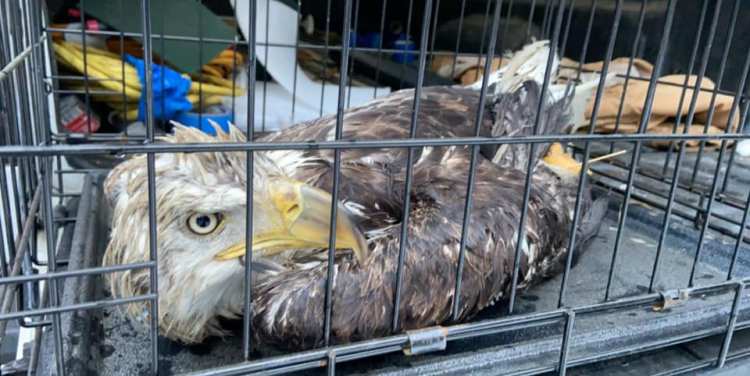Within the first 12 days of 2020, five bald eagles found in five different Maine towns tested positive for elevated levels of lead. All had to be euthanized.
It’s not uncommon — the Avian Haven bird hospital in Freedom has found 57 such eagles in the last five years, the Morning Sentinel reported Jan. 15 — and in response, the state is working on a campaign to convince hunters to move away from lead ammunition.
It’s the right move, and hunters should pay attention.
Lead ammunition shatters upon impact, spreading tiny particles that are eventually absorbed by eagles as they eat left-behind carcasses and bait they scavenge in the woods.
Just as in humans, the lead affects an eagle’s central nervous system, damages internal organs and diminishes brain function. But because of the bird’s long exposure during its digestion period, just a small amount of lead can prove fatal.
The bald eagle population in Maine is healthy. But the use of lead ammunition is causing undue suffering, and with a viable alternative available, there’s no reason for it.
The Department of Inland Fisheries & Wildlife’s campaign would try to convince hunters to switch to copper ammunition. The state would work with the North American Non-lead Partnership, which works on the same problem in several other states. The Sportsman’s Alliance of Maine may also take part.
When the California condor faced similar problems with lead exposure from ammunition, Arizona and Utah undertook aggressive campaigns to push copper ammunition on hunters, and they were largely successful. It’s notable that, once informed of their role in the problem and asked to change by wildlife authorities, many hunters complied.
Many of those that didn’t switch said the higher cost of copper ammunition was an issue — Arizona has used vouchers in some cases. Availability has also been an issue, as is the performance of copper bullets. All factors will need to be addressed to convince hunters to change.
Maine has dealt with a similar issue before. When lead fishing tackle was killing loons, some types were banned here, and the lead poisoning mortality rate of the waterfowl has fallen since.
The state of California banned lead ammunition last July in response to the condor deaths. Minnesota is considering the same after seeing its eagles suffer from lead poisoning.
But Maine doesn’t have to go there — not yet. Hunters here have always played a central role in conserving land and wildlife for outdoor recreation. If they hear the good case for copper ammunition, most will do the right thing — then work to convince others to do the same.
As the state’s raptor specialist told the Sentinel’s Meg Robbins last week, “For hunters, using nonlead ammunition provides yet another opportunity to practice being conservationists.”
Send questions/comments to the editors.


